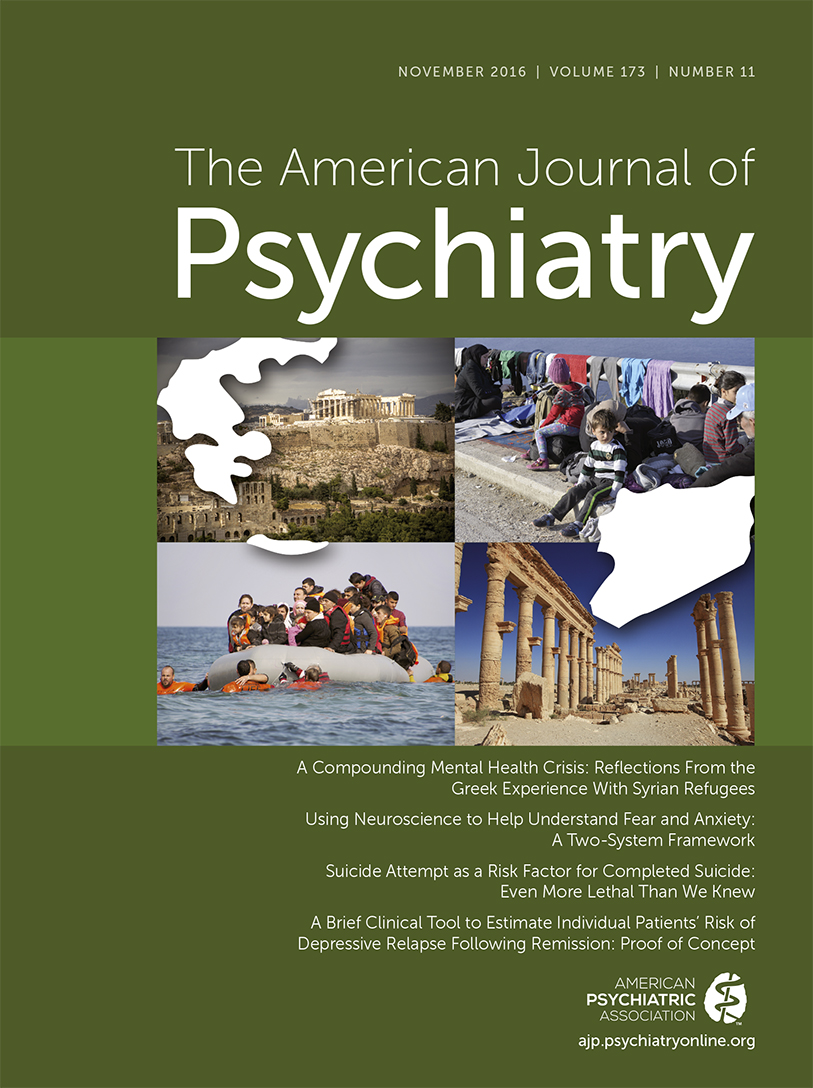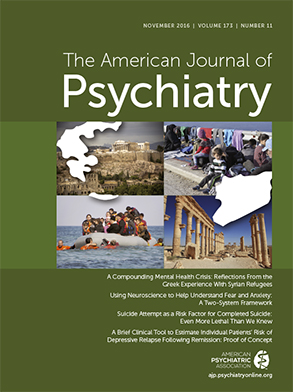T
o the E
ditor: We read with interest the article by Cozza et al. on the accuracy of DSM-5 persistent complex bereavement disorder criteria (
1). The study suggests that complicated grief criteria are more sensitive in detecting cases with grief-related symptoms than persistent complex bereavement disorder or prolonged grief disorder criteria, without compromising specificity. However, we feel that the article’s findings fail to prove superiority of the complicated grief criteria set. The study defined a “putative clinical sample” of bereaved military family members based on questionnaire cutoff scores. Specifically, putative cases needed to score 30 or higher on the 19-item Inventory of Complicated Grief (
2). Criteria sets were evaluated using the 26-item Complicated Grief Questionnaire (
3). Three criteria sets were compared: persistent complex bereavement disorder criteria that require endorsement of seven out of 16 criteria, prolonged grief disorder criteria that require endorsement of six out of 10 criteria, and complicated grief criteria that require endorsement of three out of 12 criteria. Given that the vast majority of the items in the Inventory of Complicated Grief and in the Complicated Grief Questionnaire are highly comparable, belonging to the putative clinical sample in the Cozza et al. study automatically implied a high likelihood of endorsing items on the Complicated Grief Questionnaire. Moreover, it was much easier for putative clinical cases to fulfill complicated grief criteria than to fulfill persistent complex bereavement disorder or prolonged grief disorder criteria for two reasons. First, for complicated grief as well as persistent complex bereavement disorder caseness, 17 Complicated Grief Questionnaire items were relevant, increasing chances of fulfilling these criteria, whereas for prolonged grief disorder caseness, only 12 Complicated Grief Questionnaire items were relevant. Second, for complicated grief caseness, a high score on only three (18%) of the 17 relevant Complicated Grief Questionnaire items was sufficient, whereas for persistent complex bereavement disorder or prolonged grief disorder caseness, high scores on seven out of 17 (41%) or six out of 12 (50%) relevant Complicated Grief Questionnaire items, respectively, were required. Thus, the apparent superior sensitivity of complicated grief criteria should come as no surprise. That the apparent high sensitivity came at no cost (i.e., that the apparent specificity was not compromised) could be because the nonclinical cases needed to score <20 on the Inventory of Complicated Grief, such that borderline cases were excluded from the study. The real challenge in distinguishing between normal and pathological cases is in parsing the borderline cases that the Cozza et al. analysis discarded. Furthermore, Cozza et al. did not demonstrate or compare predictive validity of the criteria sets by examining associations with independently assessed outcomes. Clinicians attempting to diagnose grief-related psychopathology need a gold standard for distinguishing between normal grief and psychopathology. Because of the shortcomings outlined above, the Cozza et al. study fails to provide a significant contribution to this aim.

